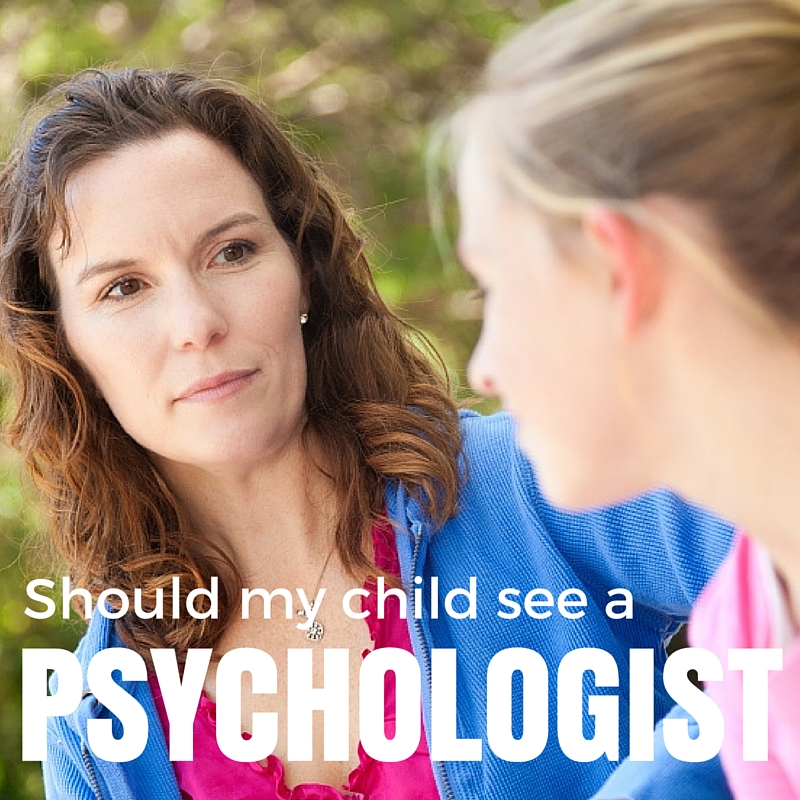As a parent, how do you know when it’s time to get professional help for a child or teenager who is anxious, depressed or angry beyond what you’d expect?
Do you take the advice of your elderly neighbour who has raised 5 kids of her own (so she must know everything?). Do you complete multiple on-line quizzes to compare your child’s behaviour to others (even though the results may not be accurate?) Making the decision to take your child to see a psychologist can be stressful and confusing for most parents.
Trust your instincts about your child
While getting information and advice from other sources can be helpful, you know your child best. If your child’s mood and emotional reactions to things seem unusual, or you just have that gut feeling that something is wrong, trust your instinct. If your child is having problems with a mental health issue, the sooner it is recognised and treated, the better the outcome.
6 common signs that your child should see a psychologist
There are many signs to look out for that indicates your child may be having more serious mental health problems. Here are 6 signs you shouldn’t ignore if you notice them in your own child:
1. Your child’s performance is affected. If your child’s behaviour is having an ongoing negative effect on their performance at school, in their extra-curricular activities, friendships or family functioning, this can be a sign that seeing a psychologist would be beneficial.
2. Unexplained physical symptoms. Depending on their age, a child may not be able to verbally explain their feelings so anxiety could present itself in the form of physical feelings. If your child has complained about feeling sick in the tummy or headaches when they are worried, but there is no identified underlying physical health problem, this could be a sign of underlying anxiety problems.
3. A change in emotional reactions. If a child is displaying more heightened distress, frequent crying, sadness, anger, irritability, agitation, or not engaging in previously enjoyable activities this may also signal there are mental health issues that a psychologist could help with. Sometimes a trusted source may also express their concern, for example, a teacher or parent of a friend. This information can be useful in judging the triggers that are encouraging this behaviour.
4. Not adjusting to change. Just like everyone, children struggle to adjust to significant life changes such as parental divorce, relocation, or death of a loved one. If your child is experiencing persistent difficulties in adjusting over the course of several months, it may signal a more serious issue that it’s worth getting help for sooner rather than later.
5. Bullying. Being bullied can greatly affect a child’s thoughts, moods and behaviour leading to ongoing emotional distress. Getting help to cope with social difficulties is an import life skill that psychologists can help children learn. Similarly, noticing your child bullying others could indicate that they may need outside help to manage their behaviour in relationships with other children.
6. As a parent you feel stuck. If you feel you don’t know what else to do to help your child’s moods or behaviour improve, seeking help from a psychologist is a good idea. Sometimes there might also be a difference of opinion between parents about how to handle your child’s problems. Getting help can reduce the strain this is putting on your relationship.
Get help for your child now
Trust your instincts. If you think you or your child would benefit from seeing a child psychologist, it will most likely be the right decision. Ahead Psychology has experienced child psychologists that provide expert help with children’s and teenager’s emotional, social and behavioural development so that they can realise their full potential ….and parenting is less stressful and more rewarding for you.
Contact Ahead Psychology on (07) 3352 3577 or use our online Request a Booking form

